Child Development: Theories, Learning, and Behavioral Analysis Report
VerifiedAdded on 2023/01/05
|6
|630
|85
Report
AI Summary
This report delves into the theoretical perspectives of child development, exploring how children learn and grow. It begins by defining child development and then examines several key theories. The report covers Freud's psychosexual developmental theory, which emphasizes the impact of early childhood experiences on later behavior; Erikson's psychosocial developmental theory, focusing on the stages of social interaction and conflicts; behavioral child development theories, which highlight the role of reinforcement and environmental factors; and Piaget's cognitive developmental theory, which outlines the stages of cognitive development. The report concludes by summarizing the various ways children learn and develop, emphasizing the importance of observation and early experiences. The references include relevant books and journals.
1 out of 6
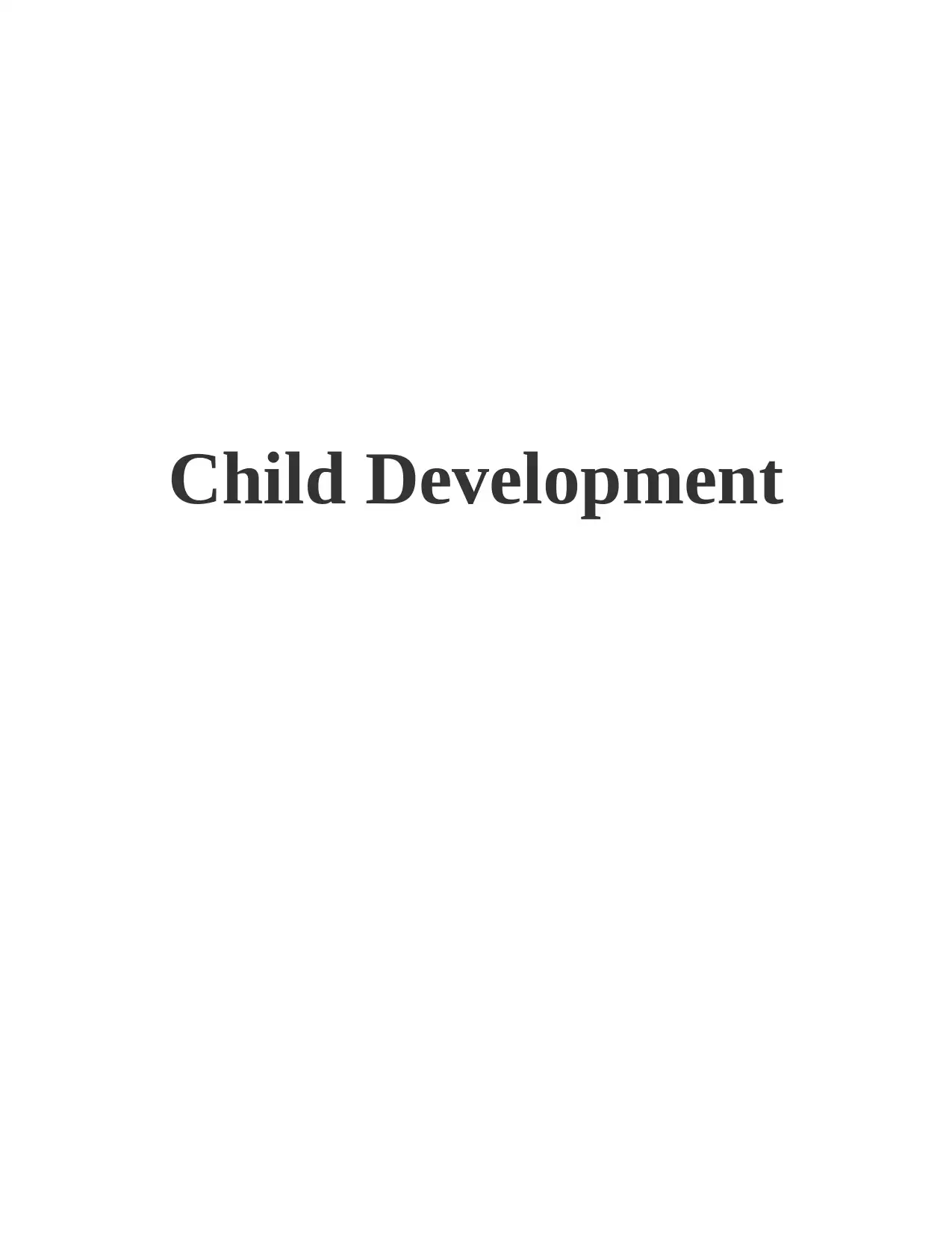
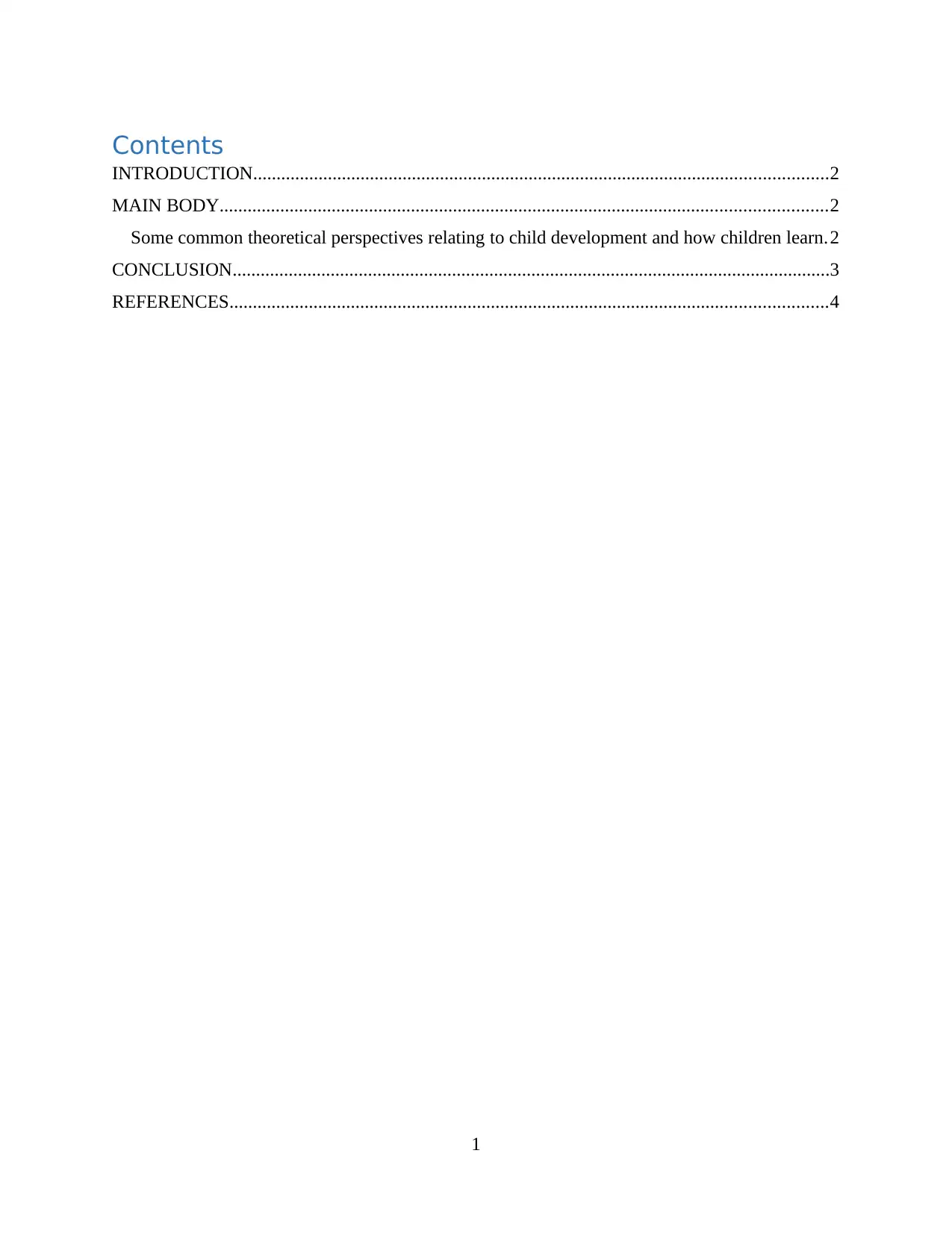
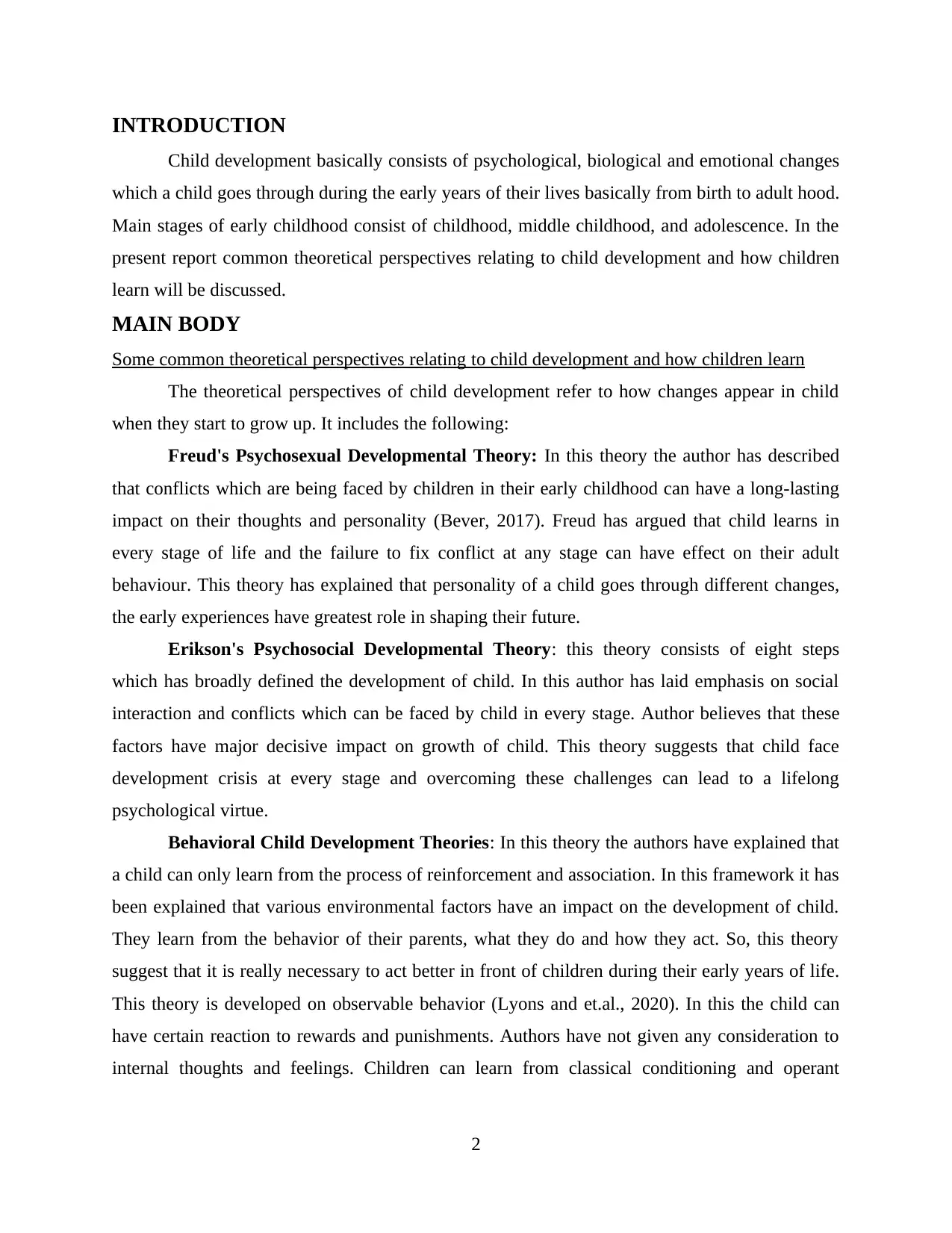

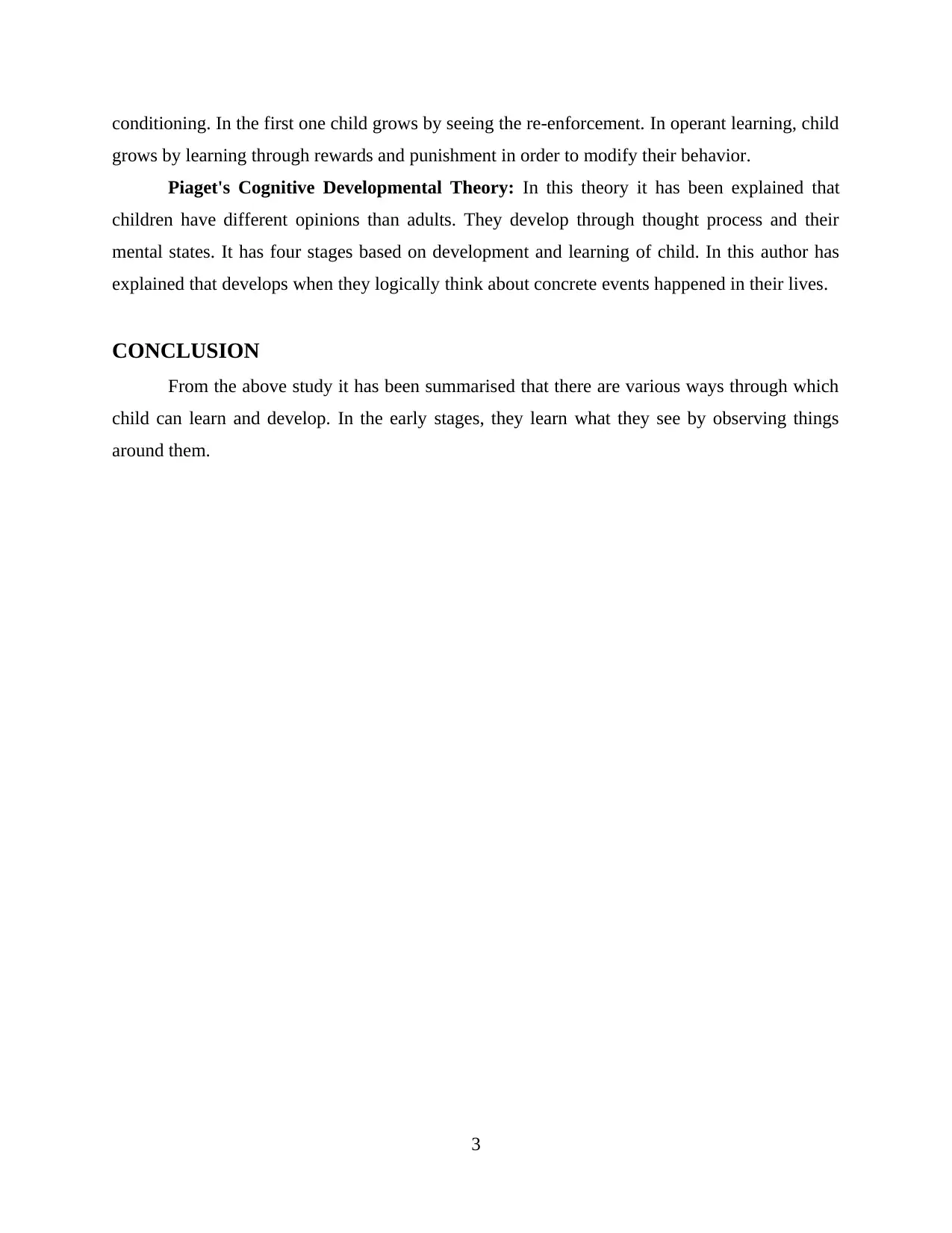
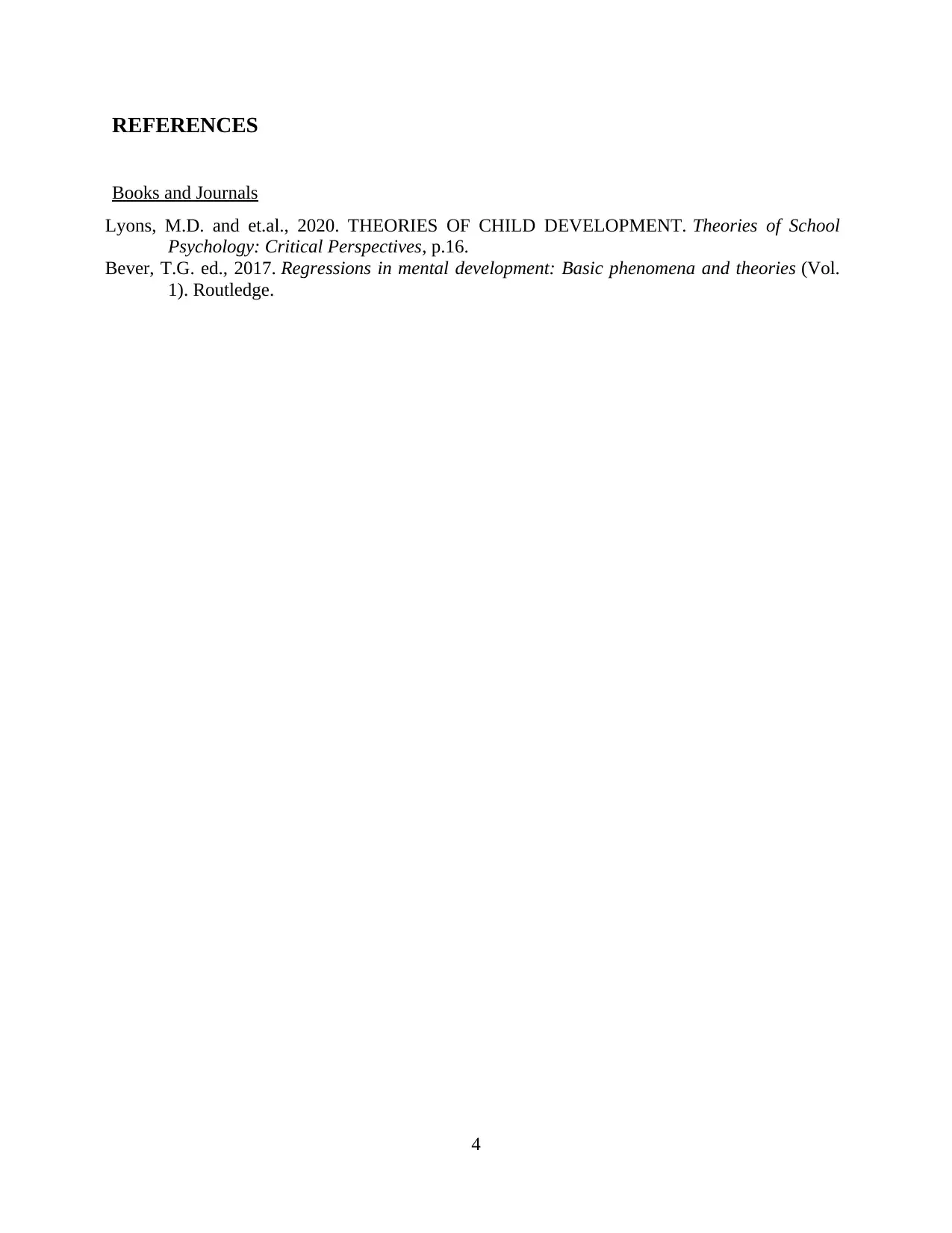







![[object Object]](/_next/static/media/star-bottom.7253800d.svg)